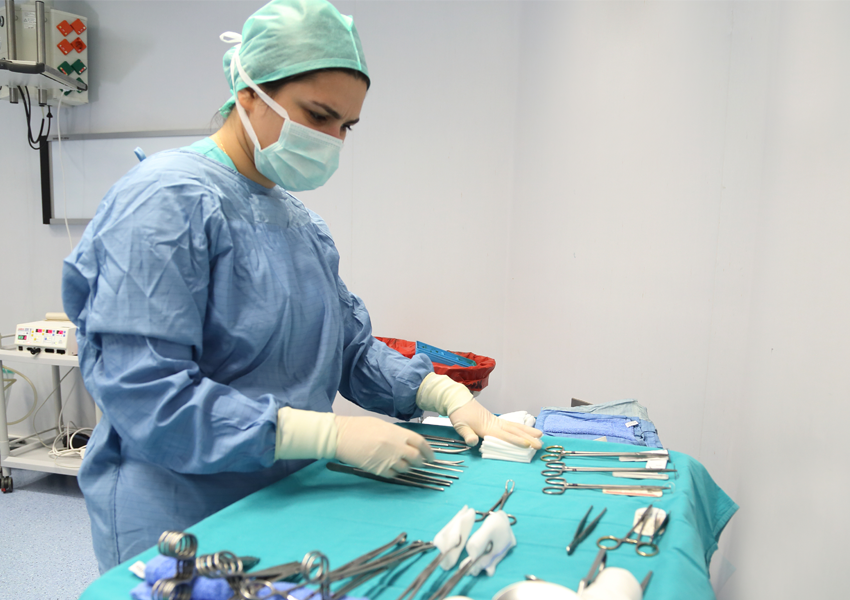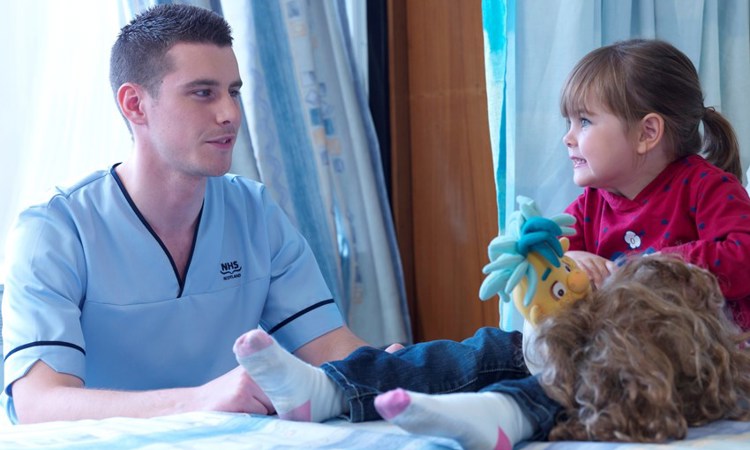How to become a theatre support worker
You can become a theatre support worker by applying for a vacancy on our recruitment website or doing a Modern Apprenticeship.
What is a theatre support worker?
Theatre support workers prepare the theatre, set up surgical instruments and equipment, manage stock, and support the operating department team during the patient's procedure.
They also check patients into theatre reception, receive a handover from ward staff, check patient details, and prepare the patient for their operation.

Starting your career as a theatre support worker
Choosing subjects at school
To become a theatre support worker, you need a good standard of education. There are no specific entry requirements, but useful subjects include:
- Science
- English
- Maths
Speak to your guidance teacher about subjects offered at your school.

Work placements and volunteering
You may find it helpful to get some healthcare experience by doing a work placement or volunteering. You’ll get training, increase your knowledge, and learn new skills. This could help you when applying to university, college or a new job with NHSScotland.
Modern Apprenticeships
A Modern Apprenticeship will help you get the knowledge, skills, and experience you need to reach your career goal.
Learn about the Modern Apprenticeship in Healthcare Support.
All Healthcare Support Modern Apprentices study 3 mandatory units:
- communication
- health and safety
- learning development
You'll choose your remaining units from the clinical pathway options for theatre support workers.
Get to know the role
As a theatre support worker, you'll prepare the theatre environment, making sure equipment is set out, ready for surgery.
You'll also provide support to patients in the anaesthetic room, providing reassurance and a high standard of patient care.
Tasks include:
- reassure family members and patients
- move patients to and from wards or within the department as required
- prepare patients for anaesthetic
- set out instruments and equipment ready for surgery
- make sure the department has stocks of items needed
- clean and tidy theatre areas after surgery
- make sure items for disposal are safely and correctly stored, ready for collection
- assist in recovery as required
You must also adhere to infection control protocols within the theatre environment and when moving and repositioning patients.
You'll need these skills:
- caring
- communicating
- problem-solving
- relationship-building
- organising
- teamwork
Orthotic support workers work with other healthcare professionals, including:
- theatre nurses
- operating department practitioners
- anaesthetists
- surgeons
- administrative staff
- porters
You'll work in:
- operating theatres
- anaethetic rooms
- recovery rooms
- hospital wards
Learning and development
When joining the NHS, you will work through the Mandatory Induction Standards. These standards are designed to help you work safely and must be completed within the first 3 to 6 months of employment.
Your development will be reviewed every year with your manager, through Personal Development Planning.
Career development
Getting experience as a healthcare support worker can be very helpful if you decide you want to become one of the following:
Navigate page

Explore careers
Discover the skills and qualifications you’ll need for each role and what the work will be like.
Explore careers
Help with recruitment
We'll guide you through the recruitment process, from applying online to interview preparation.
Help with recruitment